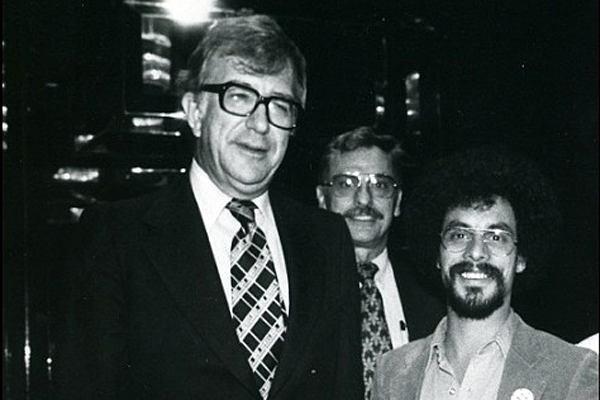Is This Any Way to Run a City’s Schools?
Leaked CTU Proposals Won’t Do Anything to Improve Schools’ Poor Performance

This summer, roughly 6,000 National Education Association union operatives and activists, having gathered in Houston for their highly political organization’s annual convention, considered a host of non-binding resolutions directing the NEA as a whole to take certain actions.
Out of the more than 160 such “business items” proposed this year, a motion pledging that the NEA would “re-dedicate itself to the pursuit of increased student learning,” might have seemed to an outside observer to be the least likely of all to meet with any opposition.
No One Should Be Surprised By Anti-Learning Vote
As education-policy specialists Nat Malkus and R.J. Martin noted in a post-convention commentary for the American Enterprise Institute, the resolution exhorting the NEA to make “the development of students as lifelong reflective learners” its “priority” contained “no obvious poison pills.”
Nevertheless, the NEA convention delegates unceremoniously rejected it!
“Anyone who has even a passing familiarity with how teacher union bosses across America operate understands that NEA officials’ agenda is bound to conflict with the best interest of schoolchildren,” said National Right to Work Committee Vice President John Kalb.
“Of course, some people might suppose the union brass would at least be worried about the PR consequences of openly acknowledging that the NEA hierarchy doesn’t protect the interests of schoolchildren.
“But teacher union delegates’ bald-faced rejection in July of the notion that student learning should be their ‘priority’ is not unprecedented.”
Interests of Talented, Hard-Working Teachers Are Also Routinely Shortchanged
More than 40 years ago, appearing on ABC News Closeup, the president of the American Federation of Teachers (AFT/AFL-CIO) sent basically the same message to the public that the convention of the U.S.’s other nationwide teacher union conveyed in July.
In a broadcast airing on May 27, 1976, Al Shanker, who headed the AFT from 1974 until his passing in 1997, said:
“I don’t see a voice for students in the bargaining process; I think it’s one of the facts of life . . . . It’s very much like a strike, let’s say, or negotiations in the private sector. The consumer, basically, is left out.”
Mr. Kalb commented: “Effectively, Mr. Shanker believed that the interests of schoolchildren are ‘left out’ of the process, now mandated by law in more than 30 states, in which union officials act as teachers’ monopoly-bargaining agents, and that it’s pointless to worry about that, because it’s a ‘fact of life.’
“And schoolchildren aren’t the only people whose interests are ‘left out’ of the monopoly-bargaining process.
“The interests of many talented and hardworking teachers also get shortchanged.
“It is thanks largely to the impact of monopolistic unionism that school systems across the country, in the words of Obama Education Secretary Arne Duncan, ‘pay teachers billions of dollars each year for earning credentials that do very little to improve the quality of teaching.’
“Meanwhile, as Mr. Duncan further noted, ‘many schools give nothing at all to the teachers who go the extra mile to make a difference in students’ lives.’”
Today, there is not even one of the 50 states where education policymaking is free from the inordinate influence of teacher union bosses.
However, thanks in large part to the persistent and determined lobbying efforts of Right to Work members and supporters, 15 states have refused to impose mandatory union bargaining over teachers’ pay, benefits, and work rules.
North Carolina, Virginia Statutes Prohibit All Government-Sector Bargaining
“For decades, with the National Committee’s leadership, Right to Work members have successfully opposed Big Labor schemes to repeal or gut the state statutes in North Carolina and Virginia that expressly prohibit any government-sector bargaining,” noted Mr. Kalb.
“An additional 13 states do not currently have and have never had a court decision, statewide statute, or constitutional provision forcing K-12 public school employers to engage in any form of bargaining with any union.
“And according to a carefully documented 2018 study for the Cato Institute, states that expressly prohibit or at least do not statutorily authorize monopoly bargaining in K-12 public education typically do a better job of educating schoolchildren at a more reasonable cost to taxpayers.”

Leaked CTU Proposals Won’t Do Anything to Improve Schools’ Poor Performance

Wherever Big Labor wields the power to collect forced union dues, union bosses funnel a large share of the confiscated money into efforts to elect and reelect business-bashing politicians. Employment growth tends to lag as a consequence.

Members Insist They Keep Pro-Right to Work Campaign Promises